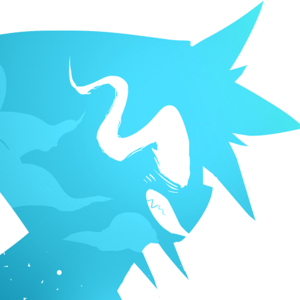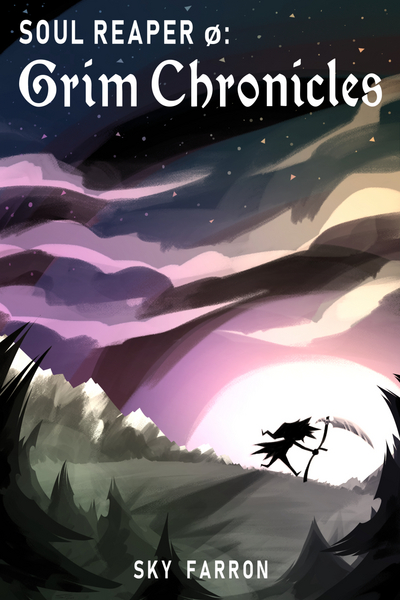THE GARDEN OF EDEN
Man at times bewares, I pray,
the faults of other men
as women do from men abroad
and women just as sinned
and though I'd love to laugh and sing
and say this isn't so
a purer world, there's no such thing
nor sanct for us to go
fruit beheld, for fruit begot,
it ripens on its tree
but what's to stop an animal
from taking there from thee?
Sword in hand, we guard its trunk
to fend off those who prey
and keep safe that which tastes of sweet
from those who'll have their way
snakes abound, and critters too,
they climb the tree at back
and by the time the critters can leave
the snake has had its snack
but lo, those fruits, remain untouched
pristine in ever's after-glory
red as fire, green as earth,
no mind paid to the scene so gory
We pride ourselves, day after day,
for tending to the fruits
but then it dawns again on us
who needed us at root
metaphors and similes
they fail to tell the tale
make simple what's all far complex
and flatten knowing stale
tree defensed, but children gone
we scratch our heads and cry
how ever did we all forget
it's our own flesh that makes beasts try?
* * *
The drama of The Collector's wayward husband was exactly what I needed
to keep my mind on something less disturbing. Figure this for a
comparison: a selfish, bodybuilding lump of leathery vitriol, versus a
tragically single mother whose ex-spouse had a substance addiction. The
latter was someone who actually deserved the focus. The Ogre's behavior
was more than just erratic. The Collector was no longer able to live in
her own home, because he'd trashed the place with discarded tinctures
and smashed potion bottles. It was overgrown with weeds, the food was
let to rot, and the curtains were torn to shreds. The Rationeer and Oaf
were more than reluctant to let anyone reside in their work-in-progress,
but The Collector's children were of far greater concern to The
Rationeer than her husband's miserable growling. And they had nowhere
else to turn. Like with guests, I carried their luggage to and fro,
until their carriages were emptied and all lay inside that basement, a
place they'd have to call home for the time thereafter.
After they'd
settled in, I was carted over to the ruined house for a grim task:
discarding the refuse, and recovering any valuables which could be sold.
His entire lineage was present, apparently, but I recalled not one of
their faces. My great uncle, a Prosaic, made a comment about keeping
something, and was met with ire. He was an old, marble-haired poet with a
firm unibrow, sharp face, and skinny body – yet hard-edged from his
work building stone walls for the villagers. He was always smoking, and
jabbering on about 'bloody foreigners'. I found him annoying at times,
but at the very least, genuine. He seemed unaware of his own speckled
origins when he spoke, which I always found odd. Or blind, perhaps.
Regardless, his comments embarrassed me, including the one he'd just
made in the ruined house. To be fair, they were all a bit stuck-up –
none seemed ready to admit The Ogre was as much a product of their own
tree's blood, as he was of his drugs and potions. Carts were loaded up,
and we left in separate ways from where we came.
Back at the house, I kept busy maintaining the yards on all sides, and harvesting the freshly-grown garden. It was hours of plucking weed roots from dirt and wooden chips, then mowing grass with a strange rolling contraption. A spiraled blade, with two wheels, and a handlebar to push it forward. I'd never seen anything like it in my life, and wondered how it would measure up to a scythe. Compared to threshing, however, I find in retrospect that it's quite inefficient; more often than not, it's just a mess of tangled fibers to pick through, and a gigantic waste of time. But with children on the green who refused to be swayed elsewhere, a sickle or scythe just wasn't safe. If their pants had gotten caught in the rolling shears, I wonder if they'd have even screamed, or just giggled at their own predicament. The way both grass and weeds grew, it was an endless war against God's green earth. But the food was worth it, and after I'd stopped drinking cow's milk and eating meat, I was always more sated by my own meals anyway. The Collector bought her own food, despite her parents' wealth, for they refused to help her unless they had spare rations. That was odd to me, considering who was more in-need, but my abstention left plenty for them to borrow. The recurrence of pantry-rot ceased, as the food miraculously vanished before it could turn powdery blue. We shared steamed carrots, scores of baked gourds, cucumbers, berries, peas, and radishes; buried in the very same soil I'd helped till not two seasons prior. My stomach had shrunk, my appetite dried, and I felt thankful for less each month. It felt like every part of me was levvy, and the presence of small children (though loud, slobbery, and annoying) brightened the home. The darkness had been shattered, and suddenly, joy was a priority again for the sake of the small – no longer to be quashed each day by The Oaf, to make up his own. At least, not without a fight... he was outnumbered by them, and that let me join their side. It made him furious, just under his skin, I could tell. So he stood his grandest, and decided he was going to be their role model – and a terrible one he would make for them, ever after.
Everyone was
gathered again, joyful in mirth, contented with steaks and tarts; pies
and pastas. I was amazed how global their palettes were. The Collector,
blonde with freckles and a curiously catlike glint, was a strange mix of
nice to your face and mean behind everyone's back – and yet she meant
both honestly, and took her fair share of judgment from others in turn.
By her old home, she'd worked her dream selling 'mystical stones' like
amethysts and emeralds to lucky travelers, promising them luck and good
favor with the Gods. Travel is a perilous venture indeed, and any small
comfort is worth its weight – even a superstitious one. But she'd been
forced to hand off the store to her successor, who pawned the whole
place off and ran with the funds – leaving her without a cent of her own
initial investment. She'd been utterly cheated, left only with a vague
promise on a writ that she'd 'receive monthly interest'. Last we'd
heard, her storefront had become a sausage stand – and I doubt the man
there grinding meats was aware of the arrangement. Distraught, but not
defeated, she became a woman of medicine here in Fogborn – something
just as magical for herself to pursue, but more vital. The Plague had
been 'round, and the people who remained were scared for their very
lives. She'd drop water in their eyes, rub their hands together with
oil, and speak incantations – they always left feeling better, even if
they'd been certain of their own demise the moment they walked in. I
admired her for that – unlike the rest of the Beckenovs, she'd been
absolutely ruined, and still yet took her pride in the assistance of
others before herself – even sometimes to her own detriment. I was
finally able to trust someone, and we shared our favourite stories as
easily as a pot of tea. The Collector was, despite her angry streak, a
truly respectful human being worthy of esteem.
Her children, on the
other hand, are the punchline to a setup I didn't know was supposed to
be a joke. They were rowdy and sweet, but ever-so-gently insane – just
like the rest of 'em. Left by their father for potion, they demanded I
marry their mother (my own aunt) and become their new 'dad'. For a
while, I figured the least I could do was teach them some of what I
knew, but more fairly as their cousin than as their 'dad'. It was a hard
thing for a child to hear, I imagine, but it was worth breaking them
back into reality from the place where they'd been living. I'd been to
school, they hadn't.
Now, from here-on out, I'm going to call The Rationeer something shorter: The Rater. This is because she's always had a habit of staunch appraisal, and guessing the worth of others within her periphery. A useful skill for her work, and a terrifying ray of pass-through judgment for everyone else for miles. She often used it to make the children feel transparent, and when she wasn't gushing joyfully about their little achievements (or their brave little crafts), she was whispering menace to them before bed. Tucking them in with violent threats, which I'd only managed to interrupt once – the look on her face was shock, and the old woman has been wary of me ever since. I was no longer the junior farmhand in her loving care, but now a harsh, critical voice that could dissent. She decided the smaller ones' ears were easier targets for her venomous mandibles, so she left me alone... but only until she could assess another weakness to press. While The Rater and Oaf were yelling and punishing the children for their various misdeeds and squabbles, I was attempting to reach their little hearts and minds through kindness and understanding. It didn't take long for them to start to gravitate to me for it – they weren't used to being listened to by anyone aside from their mother. However, it wasn't always so effective, and I found myself greatly frustrated by the task – it was more than a teenager could handle alone, and their mother took every excuse to dissociate. She'd simply yawn, look the other way, and indulge herself in some red wine, and fine reading. She collected books the same way she did stones, and had quite a library for herself to peruse at any given time. I supposed that was well-earned, for a single mother of three, and shrugged it off. It was a noble challenge to lighten her burdens, and I'd already cut my teeth landscaping. How hard could it be?
The children, nine at the oldest and four at the youngest, took to
following me around the yard while I worked – asking me questions about
how things were, why they were that way, and what kinds of jobs they
could have when they were older. A job was a title, a job was a name, a
job was a life.
The eldest, a girl I called The Sheller, was boyish
and outgoing, and had a way of making others react according to her
pretty little whims. I say this in jest, of course – I was none too
convinced by her curls and charms, and saw her too closely to myself by
reflection to be fooled. That, and I'd heard the story of her adventures
into cupboards to spill bags of sugar to play in. She was obviously a
sweet-tooth and a sweet-talker, not someone to be often believed. She'd
been a very popular infant, and took to star-lighting in crowds with
cute dancing; embarrassing her mother, but not herself one bit. I was
forced on one occasion, in front of everyone, to give her an 'Italian
Hello', which is a dry peck to the cheeks and once on the lips. I was
guilted for not wanting to do it, but I'd never kissed a girl before and
didn't want it to be my cousin. Then again, I figured, you wouldn't say
an Italian woman pecking her father 'Hello' had given up her first kiss
to him, would you? That would be a gross overstatement of the level of
affection being shown, for the sake of sexualizing something mundane.
Which is what I was being accused of by NOT doing it, so... well, the
backwards lot got their way, and I said 'hello' as quickly as I could.
It never happened again, but I felt violated in the smallest of ways...
because that was never one of MY customs, and they knew I wasn't
comfortable with it. It wasn't the only time the girl was used to
crusade for the inappropriate by her family: in fact, she was apparently
a habitual streaker, and enjoyed the red on peoples' faces when she
showed them her bare skin during a serious conversation. Or when her
mother was sipping wine, with friends. She said it was 'only natural'
and that it if you were uncomfortable that it 'revealed things about
you'. She even said it was 'bad rhetoric' that nudity was 'inherently
sexual', and that if you thought otherwise, you must be some kind of
'base animal'. While I understood that, for infants, she was correct, I
don't think she understood: once pubescence starts, being nude no
longer carries the same meaning, and becomes a communication of
intentions. Only an ancient Greek would claim otherwise, and demand
public nudity be sanctioned – and we all know what the Greeks held their
belief in when it came to the young and old; the last thing I needed to
see around here was oppressed young ones giving oil baths to their
elders. It seemed to me like the 'excuse of innocence' was an
intentional self-blinding to the consequences of natural body language,
so as to absolve oneself, and then blame society, for any "accidents"
that may occur. It wasn't so much 'blaming the victim', which was the
argument she perceived she was fighting, as it was blaming puberty for
happening to her kin, uninvited. If she'd had better sense, she would
have made sure her budding daughter stayed covered – just in case she'd
learned it was okay to show herself to someone less trustworthy than her
cultesque relatives. It was unwise to let signals fly in such a
dangerous place as real life often was, and then blame the monsters for
their eyes, and decry their lack of self-control. Perhaps she thought
she could rewrite the human script, to defend herself and her young
passively. I knew better than that – it would take action, offense, and
guardianship to accomplish that goal. There were beastly drunks about, and only a fool
would let their young be seen unsafe around them. Even to know which
houses featured the most vulnerable children was an invitation for
disaster, and I was crying to shake my head for their loose lips on the
matter – she was bragging about her 'liberated parenting techniques', as
if that made her somehow more advanced than the rest of us; last I
checked, the Garden of Eden was lost a long time ago, and they had
snakes, too. Yet here it seemed they'd supposedly found it again,
snake-free. To be fair, Ireland wasn't a place where snakes lived, but
that didn't mean it was free of all predators. The world was a bumpy
ride, and one can't just grease their wheels for the squeak to keep
gravity from having its knocks. You had to prepare, you had to batten
your wares down and get ready for the bounce. Most of all, you had to
make sure the height of admission for that ride was tall enough – so
that nobody fell off the ride and cracked their skulls.











Comments (0)
See all